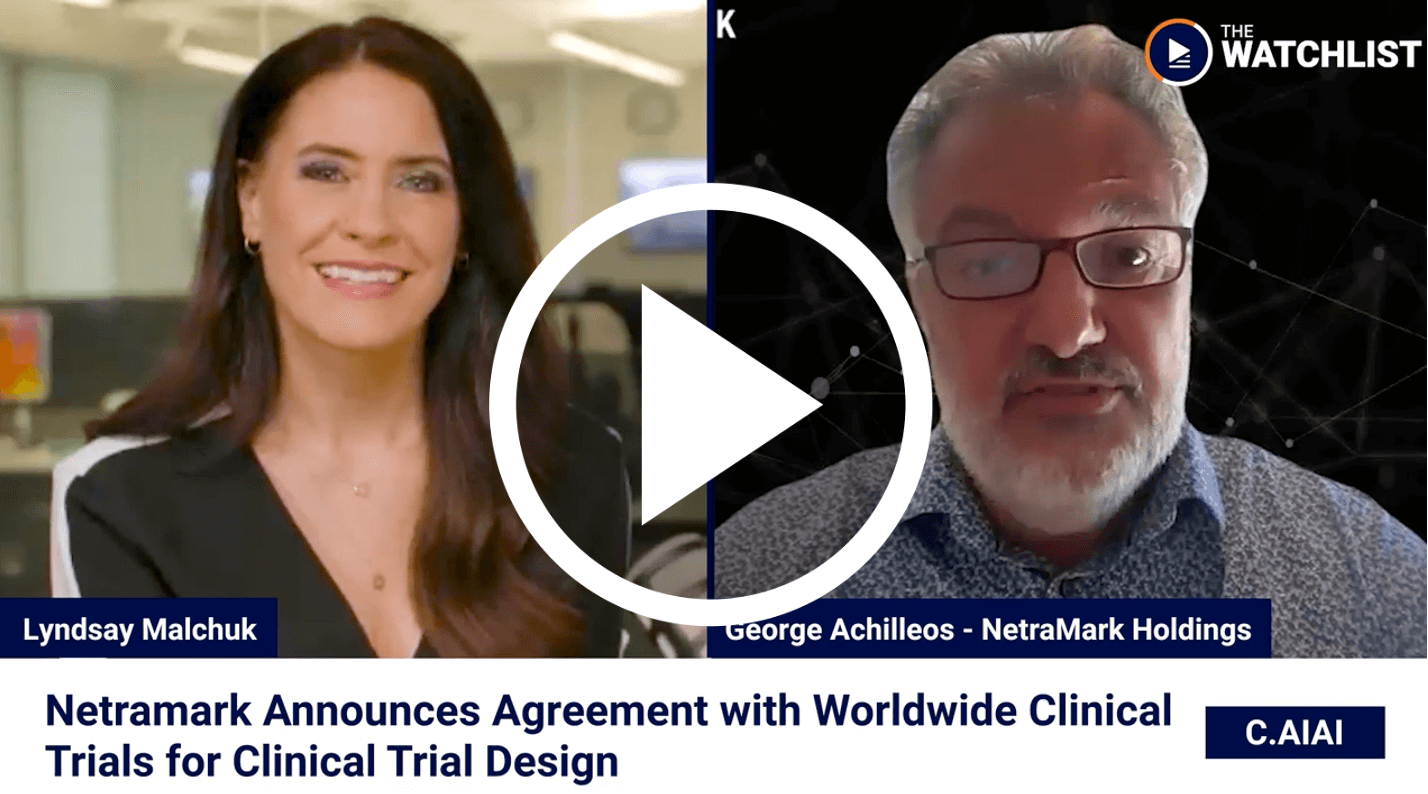April 9th, 2025 | 07:00 CEST
From diabetes to cancer: How Novo Nordisk, NetraMark, and BioNTech are reinventing medicine
The medicine of tomorrow is being written today – with algorithms that personalize therapies, mRNA vaccines that fight cancer, and drugs that conquer chronic diseases. While AI is revolutionizing clinical trials and shifting billion-dollar markets, biotech pioneers are fighting for dominance in precision medicine. Who is driving this transformation? Three companies are in the spotlight: Novo Nordisk, a pioneer in the fight against diabetes and obesity; NetraMark, whose AI is decoding clinical trials; and BioNTech, which is redefining oncology with mRNA. Their innovations are not just dreams of the future – they are already changing how lives are saved and extended.
time to read: 5 minutes
|
Author:
Armin Schulz
ISIN:
NOVO NORDISK A/S | DK0062498333 , NETRAMARK HOLDINGS INC | CA64119M1059 , BIONTECH SE SPON. ADRS 1 | US09075V1026
Table of contents:

"[...] As a company dedicated to developing treatments for rare heart diseases, we see this as an opportune moment to contribute to the fight against heart disease and make meaningful strides in improving heart health worldwide. [...]" David Elsley, CEO, Cardiol Therapeutics Inc.
Author
Armin Schulz
Born in Mönchengladbach, he studied business administration in the Netherlands. In the course of his studies he came into contact with the stock exchange for the first time. He has more than 25 years of experience in stock market business.
Tag cloud
Shares cloud
Novo Nordisk – Strategic focus on growth and innovation
Novo Nordisk is strengthening its commitment to growth markets, with Brazil at the forefront. By 2028, a highly automated production plant will be built in São Paulo for diabetes medications, including the blockbuster active ingredient Semaglutide. The investment volume exceeds EUR 1 billion. The background to this is the explosive increase in metabolic disorders in Latin America. This step aims to secure supply in one of the Company's most dynamic markets. At the same time, the Company is facing intense competition, particularly from US rival Eli Lilly, whose preparations currently have higher prescription rates in the US.
Innovative therapies remain at the core of the Company's strategy: Novo Nordisk is expanding its portfolio with drug combinations such as CagriSema, which is based on cagrilintide and semaglutide, as well as multifunctional approaches such as UBT251. The latter aims to address metabolic disorders via several biological pathways simultaneously. At the same time, production capacities in the US and Denmark are being expanded to avoid bottlenecks. New leadership initiatives are also expected to accelerate the research agenda and strengthen long-term competitiveness.
At the same time, the Company is pushing into the primary care sector in China and India. Local joint ventures are designed to shorten supply chains and reduce costs. A new supplier audit system has been introduced: anyone who disregards human rights violations or environmental regulations will be kicked out of the network. Digitally, the Company relies on AI tools that evaluate treatment data with algorithms and, thus, ultimately make therapies more successful. Since June 2024, the share price has lost over 60% of its value at the peak. Currently, a share costs EUR 57.21, but a turnaround is not yet in sight.
NetraMark - A billion-dollar problem seeks solutions
There is a costly and inefficient segment in the pharmaceutical industry. 90% of all clinical studies fail between the development of the active ingredient and market approval. Phase 3 studies, which have to be discontinued in 50-65% of cases, are particularly critical. This is a financial nightmare for biotech and pharmaceutical companies, as this is where the highest investments are made. This is where NetraMark comes in, identifying hidden patient subgroups that can determine success or failure. The Company uses AI-based analytics to identify risk factors such as placebo effects or side effects at an early stage, allowing for targeted optimization of trials.
While many AI solutions focus on large data sets in drug discovery, NetraMark focuses on smaller but critical data from completed study phases. Over 65% of all clinical tests involve fewer than 100 subjects. At this point, many conventional AI models reach their limits. Using a specialized mathematical method, the Company analyzes thousands of patient variables to isolate statistically relevant subpopulations. These insights enable more precise inclusion and exclusion criteria for follow-on phases, which increases the probability of success. Based on this expertise, the Company was able to announce a partnership with Worldwide Clinical Trials (WCT) on April 3.
WCT will offer NetraMark technology and the NetraAI platform to its global customers. It is a win-win situation for both companies. In addition, NetraMark has further collaborations, such as with the National Institute of Mental Health (NIH) and a top-5 pharmaceutical company. This demonstrates the Company's potential and the recognition of its platform. At the same time, the Company is working with a NASDAQ-listed biotech company on four ongoing contracts. With fixed costs of approximately USD 116,000 per month and a gross margin of over 90%, NetraMark is targeting a positive EBITDA by the end of 2025. An experienced management team – including industry veterans from Pfizer and Johnson & Johnson – is driving the expansion, while global partnerships are in place to ensure scalability. The stock has been spared from the recent market turmoil and is currently trading at CAD 1.38.
Lyndsay Malchuk interviews
George Achilleos, the CEO of NetraMark.

BioNTech - Oncology pipeline as growth driver
With over 20 clinical Phase 2 and 3 studies, BioNTech is positioning itself as an innovator in cancer research. The focus is on two pan-tumor programs: The bispecific antibody BNT327, which simultaneously blocks PD-L1 and VEGF-A, and mRNA-based immunotherapies. The acquisition of Biotheus secured full rights to BNT327 and strengthens BioNTech's antibody development platform. The first oncology products could be ready for market by 2026. This would be a milestone on the way to building a diversified multi-product portfolio by 2030. Data updates starting in 2025 should support the efficacy of the candidates.
In 2024, BioNTech saw a decline in revenue to EUR 2.8 billion due to a drop in demand for COVID-19 vaccines and write-offs by partner Pfizer. The net loss of EUR 0.7 billion reflects high R&D investments of EUR 2.25 billion, most of which went into the oncology pipeline. With liquid funds of EUR 17.4 billion, the Company remains financially robust. For 2025, BioNTech forecasts revenues between EUR 1.7 and 2.2 billion and plans R&D spending of up to EUR 2.8 billion. This shows a clear commitment to research depth despite the current earnings weakness.
In addition to the Biotheus acquisition, BioNTech is maintaining its COVID-19 market leadership with vaccines adapted to variants. 180 million doses have been delivered in 2024. The planned EUR 650-750 million for distribution structures indicates the build-up of commercial capacity. With the first oncology approvals from 2026, the Company could complete the transformation process from a vaccine to a diversified biotech platform. This should then give the share price a boost again. Since the beginning of January, the share has fallen by more than 40% at its peak. Currently, a share costs EUR 80.50.
Tomorrow's medicine will be shaped by Novo Nordisk, NetraMark, and BioNTech. Novo Nordisk is driving expansion into emerging markets and innovative therapies for diabetes and obesity despite share price losses of over 60%. NetraMark is revolutionizing clinical trials with AI, securing partnerships such as with Worldwide Clinical Trials, and striving for profitability with 90% gross margin. BioNTech is focusing on oncology innovations such as BNT327 after COVID successes, despite a decline in sales. While Novo competes with Eli Lilly, BioNTech hopes for approvals from 2026, and NetraMark works to reduce study risks - all three demonstrate one thing: the future of medicine is personalized, data-driven, and full of disruptive opportunities.
Conflict of interest
Pursuant to §85 of the German Securities Trading Act (WpHG), we point out that Apaton Finance GmbH as well as partners, authors or employees of Apaton Finance GmbH (hereinafter referred to as "Relevant Persons") may hold shares or other financial instruments of the aforementioned companies in the future or may bet on rising or falling prices and thus a conflict of interest may arise in the future. The Relevant Persons reserve the right to buy or sell shares or other financial instruments of the Company at any time (hereinafter each a "Transaction"). Transactions may, under certain circumstances, influence the respective price of the shares or other financial instruments of the Company.
In addition, Apaton Finance GmbH is active in the context of the preparation and publication of the reporting in paid contractual relationships.
For this reason, there is a concrete conflict of interest.
The above information on existing conflicts of interest applies to all types and forms of publication used by Apaton Finance GmbH for publications on companies.
Risk notice
Apaton Finance GmbH offers editors, agencies and companies the opportunity to publish commentaries, interviews, summaries, news and the like on news.financial. These contents are exclusively for the information of the readers and do not represent any call to action or recommendations, neither explicitly nor implicitly they are to be understood as an assurance of possible price developments. The contents do not replace individual expert investment advice and do not constitute an offer to sell the discussed share(s) or other financial instruments, nor an invitation to buy or sell such.
The content is expressly not a financial analysis, but a journalistic or advertising text. Readers or users who make investment decisions or carry out transactions on the basis of the information provided here do so entirely at their own risk. No contractual relationship is established between Apaton Finance GmbH and its readers or the users of its offers, as our information only refers to the company and not to the investment decision of the reader or user.
The acquisition of financial instruments involves high risks, which can lead to the total loss of the invested capital. The information published by Apaton Finance GmbH and its authors is based on careful research. Nevertheless, no liability is assumed for financial losses or a content-related guarantee for the topicality, correctness, appropriateness and completeness of the content provided here. Please also note our Terms of use.




